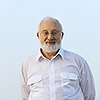Becoming A Manager Instead Of The Creator!
 In the News (from Inside Science): “When ants are confronted with information overload and face too many decisions – about where to live, for instance – they revert to the wisdom of the crowd.
In the News (from Inside Science): “When ants are confronted with information overload and face too many decisions – about where to live, for instance – they revert to the wisdom of the crowd.
“The colonies themselves are not very big, usually a few hundred workers, associate professor of biology Stephen C. Pratt said, and if an animal knocks a colony over, the roof falls in, or if they need more space, the ants have to move.
“But the ants live in areas in which the potential number of possible nest sites is overwhelming. One ant can’t cope with making the decision. No one is in charge in an ant nest.
“They distribute the task among colony members. That’s where the crowdsourcing comes in.
“According to Pratt and Sasaki, the ants send scouts to check out some potential home sites. The scouts look at such things as the size of the entrance and how big the cavity is. If the ant likes what she sees, she returns to the colony.
“She sends out a pheromone message, ‘Follow me,’ and another ant will join her in what is called tandem running. She takes her colleague out to view the potential site.
“If the second ant likes what she sees, she goes back and repeats the process, bringing back another ant. If she doesn’t like it, she merely returns to the colony. If enough ants like a site, the colony reaches a quorum, essentially choosing the new home.
“The scouts pick up their nest mates and carry them to their new homes, usually taking the nest queen along with them.
“Sasaki built an experiment in which one ant had to make the decision from two potential sites and then from eight. Half the potential sites were unsuitable in both experiments. He was forcing the ants in the laboratory to do what ants in the wild would not, send one ant to make the decision for the colony, Pratt said.
Individual ants, confronted with two choices, had no problems picking the most suitable site. When faced with choosing among eight, however, an ant often selected the wrong place.
“The two researchers tested a whole colony with the same choices, letting them send out more than one scout. The colonies, acting as a crowd, did equally well in both experiments, picking suitable sites 90 percent of the time. …
“Part of the advantage of the colony system, Sasaki and Pratt hypothesized, is that each scout visited only a few potential sites, minimizing the information it must process, while an individual ant, assigned to do it alone, had to visit them all and was the victim of cognitive overload. …
“‘Cognitive overload is a growing issue for human decision making, as unprecedented access to data poses new challenges to individual processing abilities,’ Pratt and Sasaki wrote in their journal article. ‘Human groups also solve difficult problems better when each group member has only limited access to information.’”
My Comment: The individual mind of “flocking” birds and “herding” animals exists in a minimum capacity and strength, and collective intelligence is used for all occasions, the power of the collective. Thus, nature holds together “in itself” the still, vegetative, and animate.
The human being must consciously, by the perceived need and against his individualistic nature, make a collective and unified whole out of himself and other egoists, and then he will rise to the degree of “Adam” (human), will feel and understand oneness and integrality of the system of nature, and will be able to intelligently and actively exist at the level of Adam. He will not need the animal body because it is only necessary to rise from the level of the animate (completely controlled nature) to the level of Adam (who controls nature himself, instead of the Creator).
[99581]
Related Material:
Collective Intelligence Is Dependent On The Size Of The Pack
Collective And Spiritual Intelligence
The Secret Of The Collective Mind







Discussion | Share Feedback | Ask a question